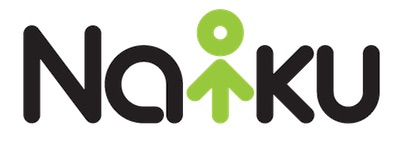
Tag: Metacognition
-
Achieving Visible Learning with Naiku
Read MoreVisible Learning is an excellent resource illustrating the effectiveness of student-centered learning which Naiku wholeheartedly supports. In Visible Learning and Visible Learning for Teachers, Dr. John Hattie (2009, 2012) synthesizes research studies involving hundreds of millions of students to show the effectiveness of different approaches to improve learning. Dr. Hattie found that student-centered learning strategies have the highest […]
-
Accelerate Student Achievement through Student Expectations
Read MoreGain Visibility into Student Expectations to Accelerate Student Achievement The number one influencer of student achievement is student expectations (or self-reported grades) as found by Hattie (2012) in Visible Learning. To gain visibility into student expectations, Dr. Nhouyvanisvong proposes a 4-step process for teachers to develop their students metacognitive skills through goal setting, test prediction, confidence ratings, […]
-
Meaningful Reflection
Read MoreMany Naikus (teachers) are familiar with the MindShift blog. If you’re not, get familiar with it. There are always great articles there to help teachers be better teachers.
 A recent article that caught my eye was “What Meaningful Reflection Student Work Can Do for Learning“, an excerpt from a book by Larissa Pahomov, an English and Journalism teacher in Philadelphia. In this article, Larissa describes three characteristics of meaningful reflection (Metacognitive, Applicable, and Shared) and how they improve student learning.
A recent article that caught my eye was “What Meaningful Reflection Student Work Can Do for Learning“, an excerpt from a book by Larissa Pahomov, an English and Journalism teacher in Philadelphia. In this article, Larissa describes three characteristics of meaningful reflection (Metacognitive, Applicable, and Shared) and how they improve student learning. -
The Teenage Mind and Naiku
Read MoreIn the October, 2011 issue of National Geographic, David Dobbs explains what’s happening in the brains of 12 – 25 year-olds. His observations are based on a National Institutes of Health (NIH) project that studied over a hundred young people as they grew up during the 1990s . The study provides some rationale for why teenagers act the […]
-
Two Stages of Metacognition: Prediction and Reflection
Read MoreIn Naiku, metacognition is a big deal! I often wonder how metacognition came to play such an important role in the Naiku Assessment Platform. Is it because I spent roughly two years doing research on the feeling-of-knowing, an important metacognitive decision-making process (Nhouyvanisvong & Reder, 1998) as a psychology graduate student at Carnegie Mellon University and have […]
-
Student Reflection: “It’s like a game”
Read MoreI’ve written about the importance and benefits of student reflection in the testing/learning process before. Reflection is a great way to engage students in metacognition. But basically, it’s a fun way for students to give feedback to their teachers. At least, that’s what third graders tell me. Recently, I had the opportunity to observe third graders […]
-
The Importance of Student Reflection
Read MoreStudent Reflection When I do professional development for teachers and administrators on how to incorporate Naiku into their formative assessment practice, the part that gets them most excited is when I talk about student reflection. Merriam-Webster.com defines reflection as “a thought, idea, or opinion formed or a remark made as a result of meditation.” Here, […]
